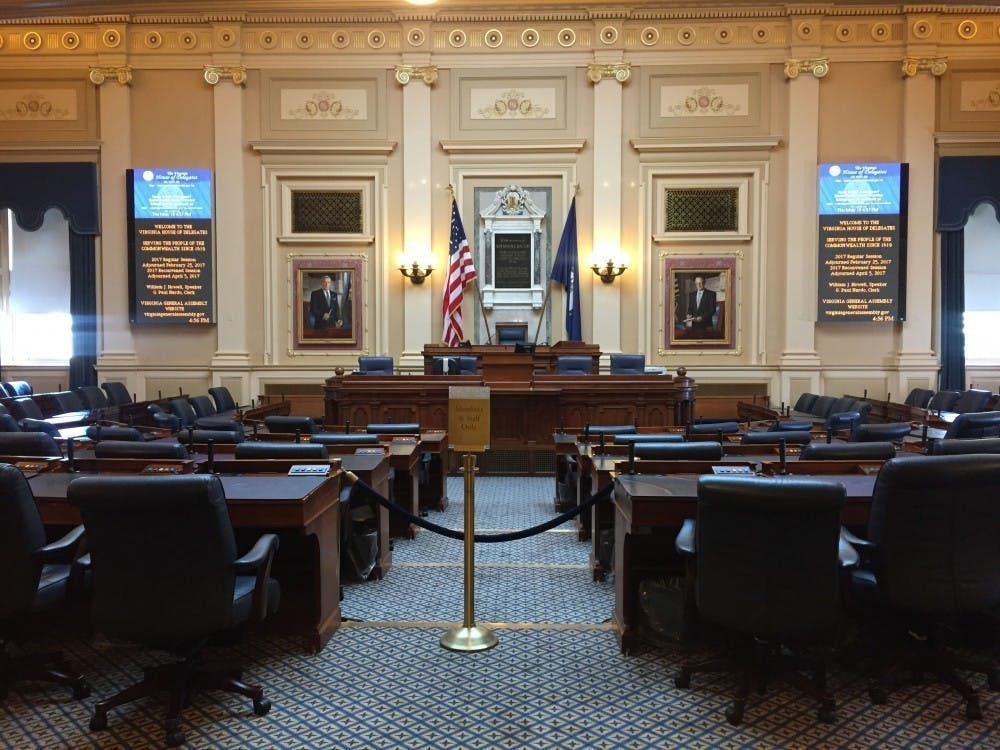The Board of Visitors approved a 3.6 percent tuition hike last month which will affect students entering and continuing studies next fall in the School of Architecture, College of Arts & Sciences, the McIntire School of Commerce and the Curry School of Education and Human Development. Students entering the Batten School of Leadership and Public Policy, the School of Engineering and Applied Science and the School of Nursing next fall will be charged between $1,000 and $2,000 more than students who are already enrolled in these schools following several financial plans approved by the Board in December 2017.
The Board’s decision regrettably follows last year’s state-wide tuition freeze, when Virginia public colleges agreed not to approve an increase in exchange for a $52.5 million grant from the Republican General Assembly. Given Democratic campaign promises to expand higher education accessibility leading up to the recent elections, the new Democratic majority needs to follow through with its promises by continuing the tuition freeze in the short term and adopting solutions to address college unaffordability in the long term.
University President Jim Ryan has maintained that the tuition increase is part of his larger plan to keep U.Va. a competitive institution. Admittedly, tuition increases are an unsurprising consequence of Ryan’s financially ambitious 2030 plan, which among other things has called for the construction of luxury dorms and a new performing arts center, improved transportation in Charlottesville and a $15 living wage for all full-time, benefits eligible University employees and contracted workers. Even if students will reap the benefits of Ryan’s goal to make the University the top public college in the country, it is worrisome that these tuition increases would be a substantial burden for low-income individuals who could benefit substantially from many of the changes Ryan wants to make.
Whereas the University’s annual tuition was $10,628 for in-state residents and $33,574 for out-of-state residents in 2010, those numbers will increase to an estimated $14,188 and $48,036 respectively in the fall. This means tuition has increased by a whopping 33.5 percent for in-state residents and 43.1 percent for out-of-state students in the past decade — and these numbers don’t even factor in room, board and other mandatory fees. Considering Ryan and the Board will only continue to increase tuition to finance their bold measures in the coming years, it’s up to Democratic legislators to take a stand for accessibility at our Commonwealth’s flagship university.
Virginia Democrats have put forward a host of higher education proposals that they claim will help improve college affordability. In his “Get Skilled, Get a Job, Give Back” initiative, Gov. Ralph Northam has proposed free community college for low- and middle-income state residents, a plan that would cost the state $145 million. Northam has also advocated for another $45 million to be allocated to financial aid programs at public schools in Virginia. But the plan hasn’t come without criticism. “Not only does the governor’s budget fail to continue the freeze, it has a slush fund for House and Senate Democrats nearly four times that size,” former Republican Majority Leader Del. Todd Gilbert said . “I doubt this is what voters were expecting when they voted for Democrats.”
Though Democratic legislators have yet to propose another state-wide tuition freeze for Virginia’s public universities, they have sought to increase the transparency of private donations to public schools and their foundations. Following a Virginia Supreme Court decision maintaining that public school foundations are not subject to the Virginia Freedom of Information Act, Del. David Bulova has proposed two pieces of legislation to make public any conditions that private donors place on their contributions to state schools.
Though the policies proposed by the Democrats will likely have a substantial impact on higher education accessibility in the Commonwealth, they must address the key reason why college remains out of reach for so many students — sky-high tuition.
Not all college affordability proposals have come from Democratic lawmakers, however. Republican Sen. Richard Stuart introduced a bill last year that would require two-thirds of each Virginia public school’s student body to approve a tuition increase before administrative adoption. Although this particular bill is rather bold, it is similar in spirit to our recent suggestion that the Board should be democratized so that students can at least somewhat participate in the financial decisions that dramatically affect their university experiences. Though Republicans are out of power and have limited ability to pass their initiatives, Democrats should follow their lead in addressing high tuition head on.
Unfortunately no party has put forward a coherent plan to increase state appropriations and compel colleges to control costs. Trimming administrative bloat and spending less on constructing luxury dorms seem like prime areas for focus.
In the meantime, Democrats need to adopt a tuition freeze and invest substantial effort toward the creation of a concrete plan to expand college accessibility. Failing to address these issues adequately is a startling omission from a political party that claims to be a proponent of greater college affordability.
The Cavalier Daily Editorial Board is composed of the Executive Editor, the Editor-in-Chief, the two Opinion Editors and their Senior Associate. The board can be reached at eb@cavalierdaily.com.







